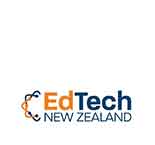Ngā mihi readers,
Thanks to some great work from David Glover, three EdTechNZ Executive Council members met with the Productivity Commission earlier this month to discuss their current inquiry into technological change and the future of work. The EdTechNZ Digital Skills Working Group has already made a submission to the inquiry. The second report has just been released (in draft form) and it focuses on employment, labour markets and income, with the Commission looking to other countries for ways to promote technology adoption.
The Commission is keen to hear from our members who know of any good practice examples in relation to:
- Retraining/upskilling of workers inspired by technological change (e.g. new tech coming into an industry, or workers retraining to remain relevant.)
- Innovative approaches to enhance digital literacy for young people (especially to help close achievement disparity for different groups like Māori or Pasifika students.)
This is an opportunity to share your good work. You can also read the inquiry’s blog and subscribe to updates.
I’ve just been reading an article about using VR to train Kiwi firefighters and this quote resonates: “the technology allows firefighters to experience unique scenarios which would otherwise be too dangerous or expensive to replicate.” It’s a great real world use-case of tech intersecting with professional training and highlights that these emerging technologies are a lot more than just hype.
This year’s Bright Sparks winners have been announced and it’s fantastic to see more young women entering this year, and winning too. If you have teenagers in your house then you need the Waterwise shower app.
The OECD has recently released a report on emotional welling being in the digital age called Educating 21st Century Children. It’s paid content, but the synopsis highlights the need to balance the intersection of new tech and emotional well-being – the risk/benefit balance.
In other paid content, you may want to look at the Encyclopedia of Educational Innovation’s recent section on Sentiment Analysis in Education. In particular, the chapter on the application of AI in education discusses how it is becoming more common to use AI to improve students’ engagement and learning, and it explains the benefits and challenges of applying machine learning to analyse students’ sentiment that in order to improve their learning experience. It also highlights the latest cloud-based tools as well as future trends in sentiment analysis.
Not directly related to EdTech, but still worth a look, is this video, Locating Yourself – A Key to Conscious Leadership, that I watched at Tech Futures Lab Digital Intelligence Q4 Briefing. These quarterly events are well worth attending for anyone with an interest in tech! The video focuses on ‘above the line thinking.’ Thanks to Francis Valentine and the team on another insightful session to end the year.
As the next newsletter is due out over the holiday season, this will be the last newsletter for the year. On behalf of all of us here at EdTechNZ, I’d like to wish you and your whānau all the best and look forward to connecting with you in the new year (and new decade).
Ngā mihi o te Kirihimete me te Tau Hou – Season’s greetings for Christmas and the New Year
Shane Kerr
Chair
Events and News
New Zealand’s digital curriculum is set for a reboot next year – but are teachers ready for it? You can review your group’s readiness with Te Tokorima-a-Mahuika.
Today’s kids might be digital natives but a new study shows they aren’t close to being computer literate.
New Zealand principals are shocked that information collected on the budgets and cybersecurity of Kiwi schools has been sold to Google and Microsoft.
New research suggests that 87 percent of teachers are worried about the potential for artificial intelligence to have a negative impact on friendships and social skills in the classroom.
Technology is key to ensuring this primary school class of 63 students thrives.
Waikato Institute of Technology (Wintec) has now joined AWS Academy, an Amazon Web Services (AWS) programme designed to prepare students to become part of the growing cloud IT workforce.
How men can remove barriers to enable women to enter STEM fields.
The Tertiary Education Strategy (TES) has released their summary report of engagement towards a new Tertiary Education Strategy.
NZTech is working with MBIE to develop an Industry Transformation Plan (ITP) for the digital technologies sector. Share your views by attending one of the six workshops nationwide.
Attend the NZ Hi-Tech Awards alumni event and launch event on 27 November in Auckland, 3 December in Wellington and 4 December in Christchurch.








